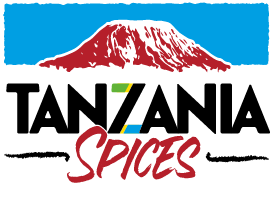Meet Tanzania’s Spices Producers
Tanzania’s spice farming
Most of Tanzania’s spices are grown on the islands of Pemba and Zanzibar and along the Eastern Arc Mountains that run north to south on the mainland. The oceanic environment on the islands and the forested highlands and lowlands on the mainland offer distinct local microclimates favourable to most spice crops.
Traditionally, spice production relied on small-scale farms that used age-old techniques and no artificial fertilizers and chemical pesticides. Spices were sown at random and crops depended on bimodal rainfall patterns and well-drained, black, loamy soil. More recently, however, the government introduced contour farming to improve sustainable agriculture in rural areas.
This sustainable farming method allows farmers to plant crops across or perpendicular to slopes to follow the contours of a sloped field. The arrangement of crops captures twice the soil moisture and breaks up the flow of water, reducing soil erosion.
The introduction of contour farming and mulching through government-led training and initiatives has transformed the spice sector in Tanzania.
Tanzania’s Spice Producers: Growing Quality, Tradition, and Innovation
Tanzania’s spice producers are spread across diverse regions, from the fertile highlands to the coastal plains. These producers cultivate a wide variety of high-quality spices, benefiting from the country’s rich soils and favorable climates. Committed to sustainability and quality, they employ both traditional and modern farming practices to create spices known for their unique flavors and aromas.
With a focus on organic farming, food safety, and innovation, Tanzania’s spice producers play a vital role in the global spice market. Their dedication to excellence ensures that each spice produced is not just a product, but a reflection of the rich agricultural heritage and entrepreneurial spirit of Tanzania.
Do you want to know more about Tanzanian Spice producers?
“There is a bright future for spice production in Tanzania. More and more people are becoming aware of spices as cash crops with large economic benefits.
”
About The Label
The Tanzania Spice Label is about showcasing authentically sourced Tanzanian spices. This certification mark ensures that locally grown spices meet high-quality standards, offering buyers confidence in every purchase. More than just a label, it represents Tanzania’s rich spice heritage, connecting farmers, producers, and businesses to global markets. By joining the Tanzania Spice Label, spice producers gain a competitive edge, enhance their brand visibility, and contribute to the sustainable growth of the industry. Elevate your spices with a trusted mark of excellence.
Want to know more about the label?
Case study: The Bakari Brothers, clove, cinnamon and vanilla farmers, Tanga
Bakari brothers
Kibula and Mohamed Bakari are two brothers who have been farming spices in the Amani Muheza mountains in Tanga since 1998.
They bought their smallholder farm from a black pepper and clove farmer and have since expanded into cinnamon. They adopted and have benefitted greatly from the government’s initiative on contour farming.
Earlier this year, the brothers also ventured into vanilla farming. Cultivating vanilla is a labour-intensive process involving hand pollination and a 4-year wait for harvest. The Bakari brothers had help from a friend but hope to access formal training in the near future.
Kibula and Mohammed believe that the Tanzania Spices label is an opportunity for their spices to stand out in the market and fetch better prices.
“We are always open to participating in these initiatives by the government because, like the contouring, they usually help us. Hopefully, we will be able to learn and develop our craft through the Tanzania Spices label project as well.
”
Case study: Nassib Omari and Suleiman Nassib, essential oil producers, Zanzibar
Nassib Omari and Suleiman Nassib
Nassib Omari owns a 30-year-old, 50-acre spice farm and essential oils manufacturing company in Unguja, Zanzibar, with his son, Suleiman Nassib.
They grow cloves, cinnamon, eucalyptus and lemongrass to create essential oils for their two businesses, Zanzibar Aromatics and Aromatics Africa.
Most of Omari’s products are revered for their quality and are exported to countries including Italy, France, Holland and Spain, earning them a sizeable profit.
“30 years ago, spices like cinnamon weren’t as common among farmers. Now a lot of people have woken up and are motivated, particularly with the help of organisations such as TASPA (Tanzania Spices Association).
”





